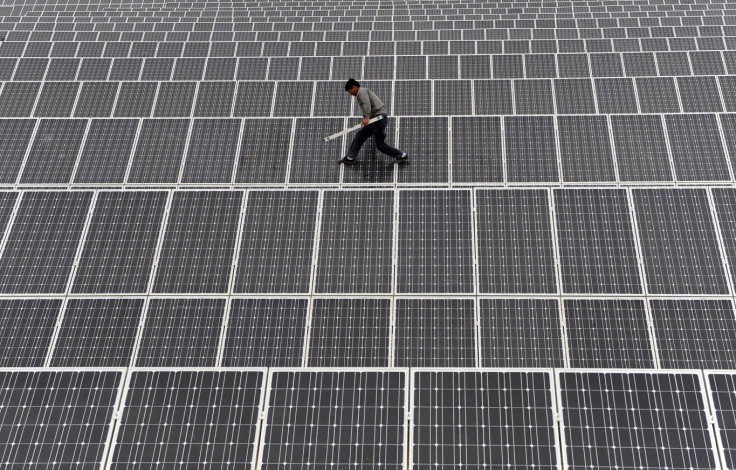Australia’s first commercial PV-diesel hybrid plant begins operation at Rio Tinto’s Weipa power plant

Australia’s first commercial solar plant, seeking to replace diesel-based power generation, commenced operation at mining giant Rio Tinto’s Weipa bauxite mine in Queensland.
The 1.7 megawatt of solar project has the capacity to produce an average of 2800 megawatt hours of electricity per year. Functionally, it is a hybrid system, which links the electricity generated by the 18,000 advanced photovoltaic or PV modules to Rio Tinto’s existing mini-grid. A power purchase agreement inked by Rio Tinto allows the buy back of power for a period of 15-years.
The facility was set up by the U.S. based PV manufacturer First Solar and promises to meet 20 percent of the daytime electricity demand for the remote mine’s township and processing facilities at the Western Cape York Peninsula in Queensland.
The plant uses First Solar’s FuelSmart solutions to combine PV generation with a fossil fuel engine generator that will optimise the fuel saving, the PV Tech News reported.
Cost saving
The electricity generated from the solar plant is expected to go a long way in reducing the diesel usage at Weipa’s power stations. It will offer an estimated savings of 600,000 litres of diesel per year.
First Solar’s regional manager for Asia Pacific, Jack Curtis, described the project as a “significant step forward for the solar industry.” This is because the solar project is marking its entry into the natural resources sector, which is generally averse to the adoption of renewable energy.
Curtis added: “It is already widely acknowledged that solar electricity is typically cheaper than diesel-powered electricity, particularly in remote locations. The significance of the Weipa Solar Plant is that it provides the opportunity to demonstrate that PV-diesel hybrid projects can also be as reliable as stand-alone diesel-powered generation.”
The project also received funding from the Australian Renewable Energy Agency or ARENA. It received AU$3.5 million for the first phase. If the first stage becomes successful, ARENA will provide up to AU$7.8 million for the second phase and introduce an energy storage component.
Rio Tinto general manager, Weipa Operations, Gareth Manderson said the power purchase arrangement is an opportunity to trial the introduction of an “alternative power source such as a solar plant into a remote electrical network like the one in Weipa,” reported Business Spectator.
Significant milestone
The chief executive of ARENA, Ivor Frischknecht, hailed the project as a boost for mining industry in reposing its faith on renewable energy as a reliable off-grid power source.
He added: “Similar ARENA-supported projects now underway, or in the pipeline, will build on this landmark project to further prove the reliability of integrating renewable energy solutions in off-grid locations while helping to drive down costs and the need for subsidy.”
For feedback/comments, contact the writer at feedback@ibtimes.com.au or let us know what you think below.





















